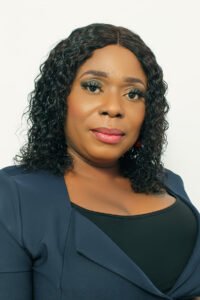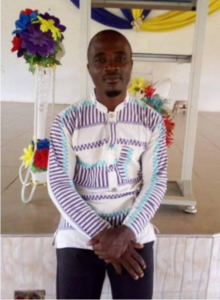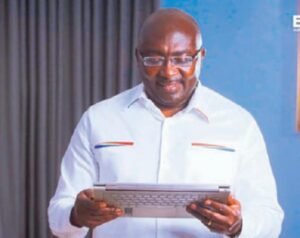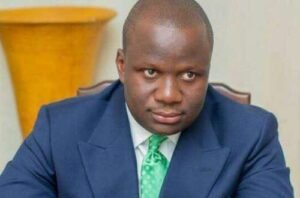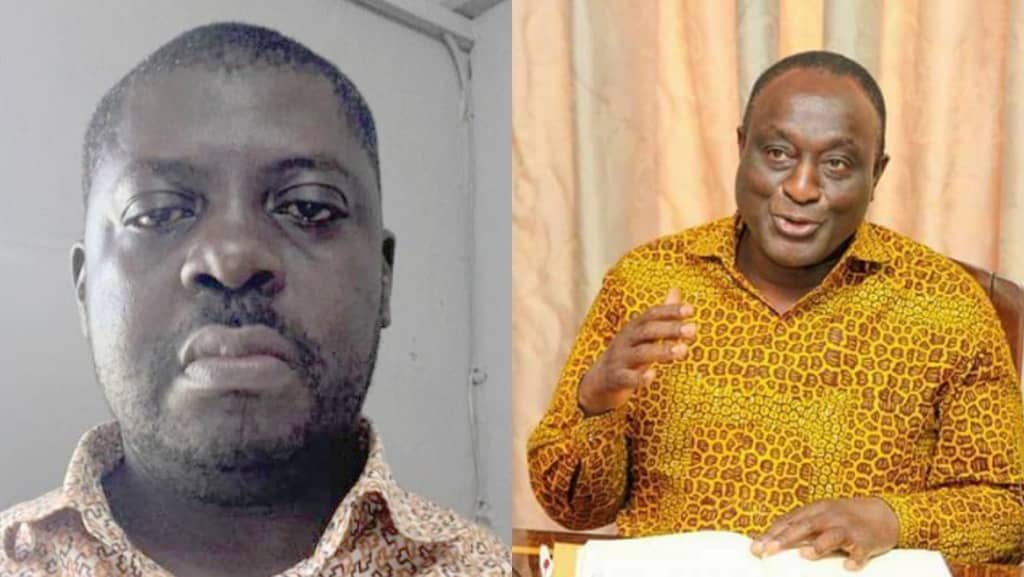
Dr. Patrick Osei-Kufuor and Alan Kyeremanten
Dr. Patrick Osei-Kufuor, a Senior Research Fellow in the Department of Peace Studies at the School for Development Studies, University of Cape Coast, has voiced his opinion on Alan Kyeremanten’s recent decision to leave the New Patriotic Party (NPP) and form his own party. Dr. Osei-Kufuor contends that while Kyeremanten may be embittered by recent events within the NPP, going independent may not be the most viable solution.
In a telephone interview on the GBC Radio Central Morning Show on Tuesday, September 27, 2023, Dr. Osei-Kufuor acknowledged that Kyeremanten’s recent commentaries and press conference, which culminated in his resignation from the NPP, indicate a sense of embitterment stemming from what he perceives as unfair treatment within the party.
However, Dr. Osei-Kufuor cautioned that feeling embittered due to perceived unfairness in internal party elections should not necessarily lead to resignation from the party. He argued that such issues are better addressed from within the party rather than by forming a new one.
The Senior Research Fellow emphasised that if Kyeremanten’s claims against the NPP are to hold weight, he should provide evidence to substantiate them. Dr. Osei-Kufuor highlighted that anyone can make claims against a party, but it is essential to back those claims with concrete evidence.
Dr. Osei-Kufuor cited historical examples of politicians in Ghana who left larger political parties to form their own parties, noting that many did not survive this transition. He reminded Kyeremanten about the potential consequences of such a move, emphasising that the party often revolves around prominent figures, and their departure can have a significant impact.
Regarding Kyeremanten’s performance in the NPP’s Super Delegates Conference and previous flagbearership races, Dr. Osei-Kufuor questioned the reasons behind Kyeremanten’s decision to leave after not winning. He contrasted this with Kennedy Ohene Agyapong, who secured second place in the Super Delegates Conference by championing messages of hope and job creation, which resonated with many youthful party executives.
Dr. Osei-Kufuor concluded by highlighting the importance of political momentum, suggesting that it has shifted away from Kyeremanten and his party. He assessed the political landscape in Ghana, indicating that Kyeremanten and his party may struggle to make significant gains in the 2024 presidential elections.
In closing, he emphasised that the political dynamics in Ghana differ from countries like Kenya, where individuals can form parties based on ethnicity and influence elections. In Ghana, party affiliation plays a crucial role in shaping voter behaviour, making going independent less likely to yield a significant impact.

